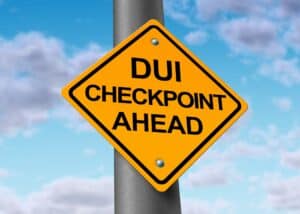One popular myth in society is that if the police fail to read a person the Miranda Warning / Rights when that person is being arrested, the suspect or defendant can avoid a conviction and punishment and have the criminal case dismissed in court. As any attorney / lawyer can tell you, this is incorrect.
Outside of and individual police departments standard police procedures, the police are not required to read suspects “their rights,” the Miranda Warning. However, if the police fail to read the Miranda Rights to a person that is in custody, responses to police questioning may be able to be suppressed from trial. “In custody” basically means that a person is being deprived of his or her freedom, not allowed to leave. The best example of “being in custody” is in a jail cell or prison cell, interrogation room or interview room with the door closed and not allowed to leave, or handcuffed in the back of a police car with the doors shut and locked. There also may be other situations when a person is in custody, not free to leave. Any person that believes the Miranda Rights should have been provided should speak with a skilled attorney / lawyer that can fully evaluate the situation.
However, there are many statements people make that can be used against them in court during trial or a hearing. If a person is in custody and making voluntary statements that are incriminating, those statements are likely to be used against them. If a police officer has arrested a person and is transporting that person to jail, any statements that person makes voluntarily may be used against them. A classic situation is when people are under arrest and being transported to jail, and starts up a conversation with a police officer. Often the person arrested will apologizes for what they are accused of doing or try to justify what was done.
Also, if a person makes a statement while not in custody (voluntary statement), and then repeats the statement as a response to police questioning without their rights being read, the voluntary statement can still be used in court. For example, if a law enforcement officer pulls a person over on a traffic violation, and the cop asks the person how much they have had to drink while that person is still in their own car, this is a voluntary statement because the person is not in custody and not under arrest at this point. If a police officer places a person in custody, and then asks if he or she has been drinking, that response could be suppressed. However, the prior statement that was made while the suspect was seated in their own car can still be used against them in court.
A popular tactic used by the police is to call a person that is accused or suspected of committing a crime. Explain to that person that the police officer or detective is merely doing an investigation and would like the person being accused to come down to the police station to give his or her side of the story. Once the suspect arrives, the police officer will take that person into an interrogation or interview room. The cop will leave the door open, tell that person they are not under arrest, that they can leave anytime they want, and then proceed to questioning. Because the suspect voluntarily drove to the police station, is not locked up and is not under arrest, that suspect is not in custody and therefore any statements made are most likely deemed voluntary, and do not require a Miranda Rights to be read.
The statements without the Miranda Rights being read are still voluntary if the cop is going to arrest the person before they can leave, but the suspect is not aware of that. Once the police officer has obtained the statements voluntarily, the office may then read the person the Miranda Rights and ask them the same questions to illicit the same statements. Now the cop has both voluntary statements and statements obtained after Miranda has been read. This simply gives the prosecutor a very strong likely hood that the statements do not get suppressed by a defense attorney. However, any person that has been arrested should consult with a knowledgeable attorney / lawyer that can take a look at the case or situation as a whole for possible suppression issues. Law Offices of Clifton Black, PC has been successful at suppressing statements in a criminal case even though the client was not in a police station or in a police car. An attorney needs to be able to evaluate a case and look at the totality of the circumstances for suppression issues.
In a case where statements are suppressed, additional evidence may be suppressed if that additional evidence was discovered as a result of the suppressed statements. If the prosecution does not have any evidence after suppression the case may be dismissed.



